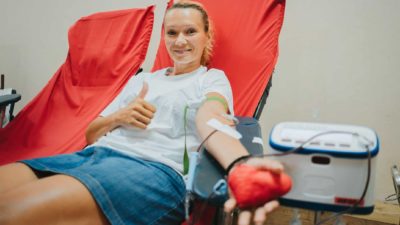It has been a disastrous start to the week for Actinogen Medical Ltd (ASX: ACW) shares.
In morning trade, the ASX healthcare stock was down as much as 67% to 2.5 cents.
The neurological and neuropsychiatric diseases focused biotechnology company's shares have recovered a touch but remain down 61% at 3 cents at the time of writing.
Why is this ASX healthcare stock crashing?
Investors have been rushing to the exits after the company released the phase 2a trial topline results from its XanaCIDD trial of Xanamem in patients with cognitive dysfunction and major depressive disorder (MDD).
According to the release, there was a clinically meaningful and persistent improvement in depression measured by the key secondary endpoint of MADRS.
Management notes that this outcome indicates potential modification of the underlying biology of depression as a result of inhibition of tissue cortisol synthesis. This would be a completely novel mechanism for the treatment of depression.
However, importantly, and the reason the ASX healthcare stock is crashing deep into the red today, is that the trial did not meet its primary endpoint.
That primary goal was improving the "attention composite." Management has blamed this failure on an unexpectedly large improvement in the placebo group. It summarises:
The trial did not meet the primary endpoint of an "attention composite" of three Cogstate computerized tests measuring attention and working memory with similar and large improvements in performance observed. Mean improvements in the Xanamem and placebo groups were 0.3 and 0.4 z-score points, respectively (p not significant). The unexpectedly large placebo mean improvement may have impaired the ability of the trial to observe any short-term pro-cognitive effects of Xanamem.
What now?
The ASX healthcare stock's management team remains upbeat.
Actinogen's Chief Medical Officer, Dr Dana C Hilt, said:
This encouraging result on depression is very positive to the whole Xanamem program and confirms 10 mg daily is an active clinical dose with the ability to potentially modify underlying biological processes in the brain. We will continue to examine these topline data in detail and the larger dataset to better understand the complete results and determine next steps for the depression program. The unexpected cognition placebo effect appears to have impaired the ability of Xanamem to show the pro-cognitive effects that we have observed in three previous studies
Its CEO, Dr Steven Gourlay, echoed this sentiment. He said:
The excellent safety profile of Xanamem was again demonstrated in this trial and the significant treatment benefits seen in depression are encouraging for both the depression and Alzheimer's disease programs. We believe the trial confirms the ability of Xanamem 10 mg daily to safely provide benefit to patients by inhibiting the synthesis of the "stress hormone" cortisol in the brain.









